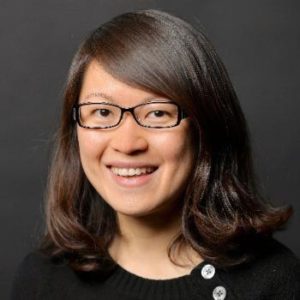
PHIND Seminar Series: Towards precision diagnostic and prediction of food allergy
Sindy KY Tang, Ph.D.
Associate Professor of Mechanical Engineering, Senior Fellow at the Woods Institute for the Environment and Professor, by courtesy, of Radiology – PHIND Center
Stanford University
Location: Zoom
Webinar URL: https://stanford.zoom.us/s/91932966334
Dial: US: +1 650 724 9799 or +1 833 302 1536 (Toll Free)
Webinar ID: 919 3296 6334
Passcode: 383071
11:00am – 12:00pm Seminar & Discussion
RSVP Here
ABSTRACT
Food allergy has reached epidemic proportions. Accurate in vitro methods that are efficient and easy to use to identify offending food allergens are lacking. Oral food challenge, the gold standard for food allergy assessment, is often not performed as it places the patient at risk of anaphylaxis. As such, food allergy is often identified only after an adverse reaction that could be life-threatening. Our long-term goal is to develop a food allergy diagnostic test that is accurate, safe, rapid, and accessible, so that food allergy can be easily identified prior to the occurrence of an adverse reaction, and that the efficacy of immunotherapy for food allergy can be tracked more effectively. This talk will discuss our recent work on developing such a test. Our approach is based on the Basophil Activation Test (BAT), which measures the activation of basophils in whole blood after stimulation with specific food allergens ex vivo. The BAT has been shown to be highly predictive of allergic reactions. However, the need for flow cytometry has limited its broader use. We are developing a miniaturized, standalone version of the BAT. We envision that the test can be used at the point of care, such as the doctor’s office or at a local pharmacy.
ABOUT
Prof. Sindy KY Tang is the Kenneth and Barbara Oshman Faculty Scholar and Associate Professor of Mechanical Engineering and by courtesy of Radiology (Precision Health and Integrated Diagnostics) at Stanford University. She received her Ph.D. from Harvard University in Engineering Sciences under the supervision of Prof. George Whitesides. Her lab at Stanford works on the fundamental understanding of fluid mechanics and mass transport in micro-nano systems, and the application of this knowledge towards problems in biology, rapid diagnostics for health and environmental sustainability. The current areas of focus include the flow physics of confined micro-droplets using experimental and machine learning methods, interfacial mass transport and self-assembly, and ultrahigh throughput opto-microfluidic systems for disease diagnostics, water and energy sustainability, and single-cell wound healing studies. She was a Stanford Biodesign Faculty Fellow in 2018. Dr. Tang’s work has been recognized by multiple awards including the NSF CAREER Award, 3M Nontenured Faculty Award, the ACS Petroleum Fund New Investigator Award, and invited lecture at the Nobel Symposium on Microfluidics in Sweden. Website: http://web.stanford.edu/group/tanglab/
Hosted by: Garry Gold, M.D.
Sponsored by the PHIND Center and the Department of Radiology
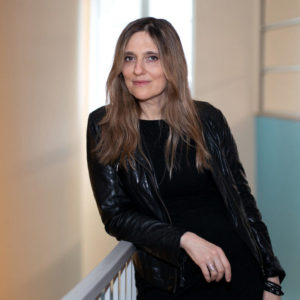
Regina Barzilay, PhD
School of Engineering Distinguished Professor for AI and Health
Electrical Engineering and Computer Science Department
AI Faculty Lead at Jameel Clinic for Machine Learning in Health
Computer Science and Artificial Intelligence Lab
Massachusetts Institute of Technology
Abstract:
In this talk, I will present methods for future cancer risk from medical images. The discussion will explore alternative ways to formulate the risk assessment task and focus on algorithmic issues in developing such models. I will also discuss our experience in translating these algorithms into clinical practice in hospitals around the world.
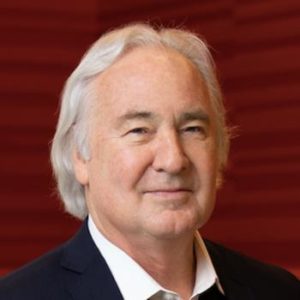
MIPS Seminar Series: Predicting and Preventing Fetal and Neonatal Pathology: Looking Back and Looking Forward
David K. Stevenson, MD
The Harold K. Faber Professor of Pediatrics, Senior Associate Dean, Maternal and Child Health and Professor, by courtesy, of Obstetrics and Gynecology
Lucile Packard Children’s Hospital
Zoom Webinar Details
Webinar URL: https://stanford.zoom.us/s/94584828060
Dial: +1 650 724 9799 or +1 833 302 1536
Webinar ID: 945 8482 8060
Passcode: 481874
12:00pm – 12:45pm Seminar & Discussion
RSVP Here
ABSTRACT
The importance of minimally invasive technologies for interrogating the fetus and newborn, as well as of knowing where a biologic system is headed, not just where it has been, when trying to predict and prevent acquired diseases, will be discussed. Examples of such technologies, such as trace gas analysis and optical reporting of biologic phenomena, and their application to model systems and the human newborn will be presented. The role of advanced computational approaches for the integration and interpretation of large amounts of data derived from these new measurement tools will be emphasized.
ABOUT
Dr. David K. Stevenson is the Harold K. Faber Professor of Pediatrics and has made many impactful contributions to the field of neonatology and pediatrics, including his seminal studies on neonatal jaundice, bilirubin production and heme oxygenase biology. As a neonatologist, his research has focused primarily on neonatal jaundice and more recently on the causes of preterm birth and its prevention. He has held numerous leadership roles at Stanford University School of Medicine, including Vice Dean and Senior Associate Dean for Academic Affairs. He is currently the Senior Associate Dean for Maternal & Child Health, the Co-Director of the Stanford Maternal & Child Health Research Institute, and the Principal Investigator for the March of Dimes Prematurity Research Center at Stanford University. Dr. Stevenson has received many awards, including the Virginia Apgar Award, which is the highest award in Perinatal Pediatrics, the Joseph W. St. Geme, Jr. Leadership Award from the Federation of Pediatric Organizations, the Jonas Salk Award for Leadership in Prematurity Prevention from the March of Dimes Foundation, and the John Howland Medal and Award, the highest award in academic pediatrics. He has served as the President of the American Pediatric Society. In recognition of his achievements, Dr. Stevenson is a member of the National Academy of Medicine.
Hosted by: Katherine Ferrara, PhD
Sponsored by: Molecular Imaging Program at Stanford & the Department of Radiology
Keynote:
Self-Supervision for Learning from the Bottom Up
Why do self-supervised learning? A common answer is: “because data labeling is expensive.” In this talk, I will argue that there are other, perhaps more fundamental reasons for working on self-supervision. First, it should allow us to get away from the tyranny of top-down semantic categorization and force meaningful associations to emerge naturally from the raw sensor data in a bottom-up fashion. Second, it should allow us to ditch fixed datasets and enable continuous, online learning, which is a much more natural setting for real-world agents. Third, and most intriguingly, there is hope that it might be possible to force a self-supervised task curriculum to emerge from first principles, even in the absence of a pre-defined downstream task or goal, similar to evolution. In this talk, I will touch upon these themes to argue that, far from running its course, research in self-supervised learning is only just beginning.

CEDSS: The First Cell: A new model for cancer research and treatment
Azra Raza, M.D.
Chan Soon-Shiong Professor of Medicine
Director, Myelodysplastic Syndrome Center
Columbia University Medical Center
Location: Zoom
Meeting URL: https://stanford.zoom.us/s/99340345860
Dial: US: +1 650 724 9799 or +1 833 302 1536 (Toll Free)
Meeting ID: 993 4034 5860
Passcode: 711508
ABSTRACT
Cancer research continues to be predicated on a 1970’s model of research and treatment. Despite half a century of intense research, we are failing spectacularly to improve the outcome for patients with advanced disease. Those who are cured continue to be treated mostly with the older strategies (surgery-chemo-radiation). Our contention is that the real solution to the cancer problem is to diagnose cancer early, at the stage of The First Cell. The rapidly evolving technologies are doing much in this area but need to be expanded. We study a pre-leukemic condition called myelodysplastic syndrome (MDS) with the hope that we can detect the first leukemia cells as the disease transforms to acute myeloid leukemia (AML). Towards this end, we have collected blood and bone marrow samples on MDS and AML patients since 1984. Today, our Tissue Repository has more than 60,000 samples. We propose novel methods to identify surrogate markers that can identify the First Cell through studying the serial samples of patients who evolve from MDS to AML.
ABOUT
Dr. Raza is a Professor of Medicine and Director of the MDS Center at Columbia University in New York, NY.She started her research in Myelodisplastic Syndromes (MDS) in 1982 and moved to Rush University, Chicago, Illinois in 1992, where she was the Charles Arthur Weaver Professor in Oncology and Director, Division of Myeloid Diseases. The MDS Program, along with a Tissue Repository containing more than 50,000 samples from MDS and acute leukemia patients was successfully relocated to the University of Massachusetts in 2004 and to Columbia University in 2010.
Before moving to New York, Dr. Raza was the Chief of Hematology Oncology and the Gladys Smith Martin Professor of Oncology at the University of Massachussetts in Worcester. She has published the results of her laboratory research and clinical trials in prestigious, peer reviewed journals such as The New England Journal of Medicine, Nature, Blood, Cancer, Cancer Research, British Journal of Hematology, Leukemia, and Leukemia Research. Dr. Raza serves on numerous national and international panels as a reviewer, consultant and advisor and is the recipient of a number of awards.
Hosted by: Utkan Demirci, Ph.D.
Sponsored by: The Canary Center & the Department of Radiology
Stanford University – School of Medicine
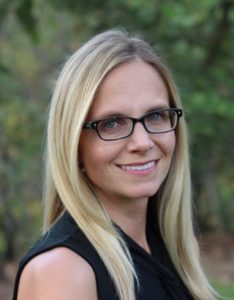
PHIND Seminar Series: Topic TBA
Christina Curtis, Ph.D.
Associate Professor of Medicine (Oncology) and of Genetics
Stanford University
Location: Venue coming soon!
11:00am – 12:00pm Seminar & Discussion
12:00pm – 12:15pm Reception
RSVP coming soon!
ABSTRACT
Coming soon!
ABOUT
Coming soon!
Hosted by: Garry Gold, M.D.
Sponsored by the PHIND Center and the Department of Radiology
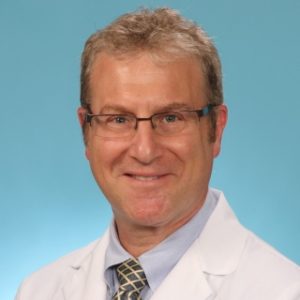
MIPS Seminar Series: Title TBA
Steven Paul Poplack, MD
Professor of Radiology (Breast Imaging)
Stanford University Medical Center
Location: Coming soon!
12:00pm – 12:45pm Seminar & Discussion
RSVP: Coming soon!
ABSTRACT
Coming soon!
ABOUT
Coming soon!
Hosted by: Katherine Ferrara, PhD
Sponsored by: Molecular Imaging Program at Stanford & the Department of Radiology

PHIND Seminar Series: Male Infertility and the Future Risk of Vascular and CV Disease
Michael Eisenberg, M.D.
Associate Professor of Urology and, by courtesy, of Obstetrics and Gynecology
Stanford University Medical Center
Gary M. Shaw, Ph.D.
NICU Nurses Professor and Professor, by courtesy, of Health Research and Policy (Epidemiology) and of Obstetrics and Gynecology (Maternal Fetal Medicine)
Stanford University
Location: Venue coming soon!
11:00am – 12:00pm Seminar & Discussion
12:00pm – 12:15pm Reception
RSVP coming soon!
ABSTRACT
Coming soon!
ABOUT
Coming soon!
Hosted by: Garry Gold, M.D.
Sponsored by the PHIND Center and the Department of Radiology
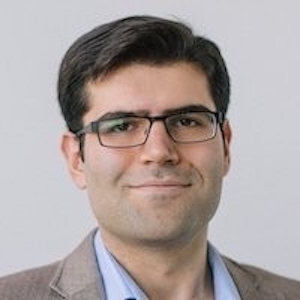
Saeed Hassanpour, PhD
Associate Professor of Biomedical Data Science
Associate Professor of Epidemiology
Associate Professor of Computer Science
Dartmouth Geisel School of Medicine
Deep Learning for Histology Images Analysis
Abstract:
With the recent expansions of whole-slide digital scanning, archiving, and high-throughput tissue banks, the field of digital pathology is primed to benefit significantly from deep learning technology. This talk will cover several applications of deep learning for characterizing histopathological patterns on high-resolution microscopy images for cancerous and precancerous lesions. Furthermore, the current challenges for building deep learning models for pathology image analysis will be discussed and new methodological advances to address these bottlenecks will be presented.
About:
Dr. Saeed Hassanpour is an Associate Professor in the Departments of Biomedical Data Science, Computer Science, and Epidemiology at Dartmouth College. His research is focused on machine learning and multimodal data analysis for precision health. Dr. Hassanpour has led multiple NIH-funded research projects, which resulted in novel machine learning and deep learning models for medical image analysis and clinical text mining to improve diagnosis, prognosis, and personalized therapies. Before joining Dartmouth, he worked as a Research Engineer at Microsoft. Dr. Hassanpour received his Ph.D. in Electrical Engineering with a minor in Biomedical Informatics from Stanford University and completed his postdoctoral training at Stanford Center for Artificial Intelligence in Medicine & Imaging.
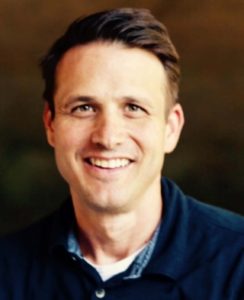
MIPS Seminar Series: Title TBA
Matthew Bogyo, PhD
Professor of Pathology and of Microbiology and Immunology and, by courtesy, of Chemical and Systems Biology
Stanford University
Location: Coming soon!
12:00pm – 12:45pm Seminar & Discussion
RSVP: Coming soon!
ABSTRACT
Coming soon!
ABOUT
Dr. Bogyo received a B.Sc. degree in Chemistry from Bates College in 1993 and a Ph.D. in Biochemistry from the Massachusetts Institute of Technology in 1997. After completion of his degree he was appointed as a Faculty Fellow in the Department of Biochemistry and Biophysics at the University of California, San Francisco. Dr. Bogyo served as the Head of Chemical Proteomics at Celera Genomics from 2001 to 2003 while maintaining an Adjunct Faculty appointment at UCSF. In the Summer of 2003 Dr. Bogyo joined the Department of Pathology at Stanford Medical School and was appointed as a faculty member in the Department of Microbiology and Immunology in 2004. His interests are focused on the use of chemistry to study the role of proteases in human disease. In particular his laboratory is currently working on understanding the role of cysteine proteases in tumorgenesis and also in the life cycle of human parasites and bacterial pathogens. Dr. Bogyo currently serves on the Editorial Board of Biochemical Journal, Cell Chemical Biology, Molecular and Cellular Proteomics and is an Academic Editor at PLoS One. Dr. Bogyo is a consultant for several biotechnology and pharmaceutical companies in the Bay Area and is a founder and board member of Akrotome Imaging and Facile Therapeutics.
Hosted by: Katherine Ferrara, PhD
Sponsored by: Molecular Imaging Program at Stanford & the Department of Radiology